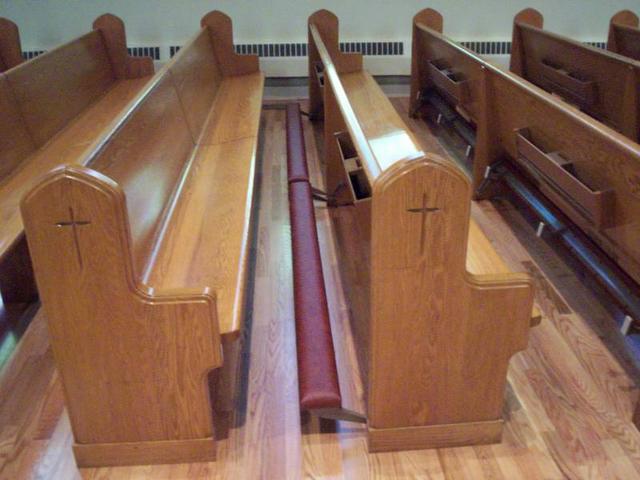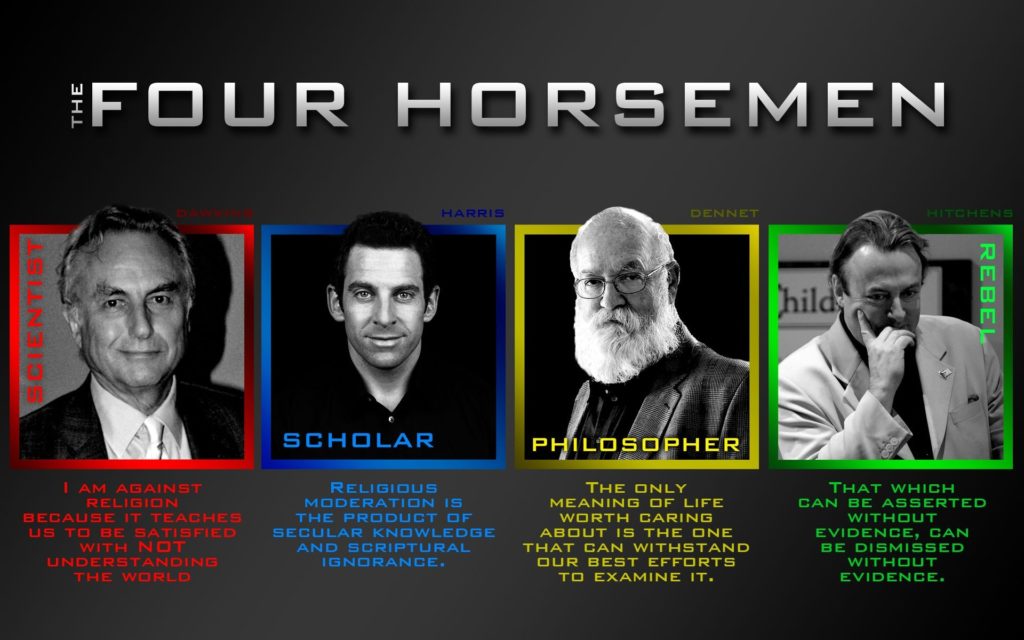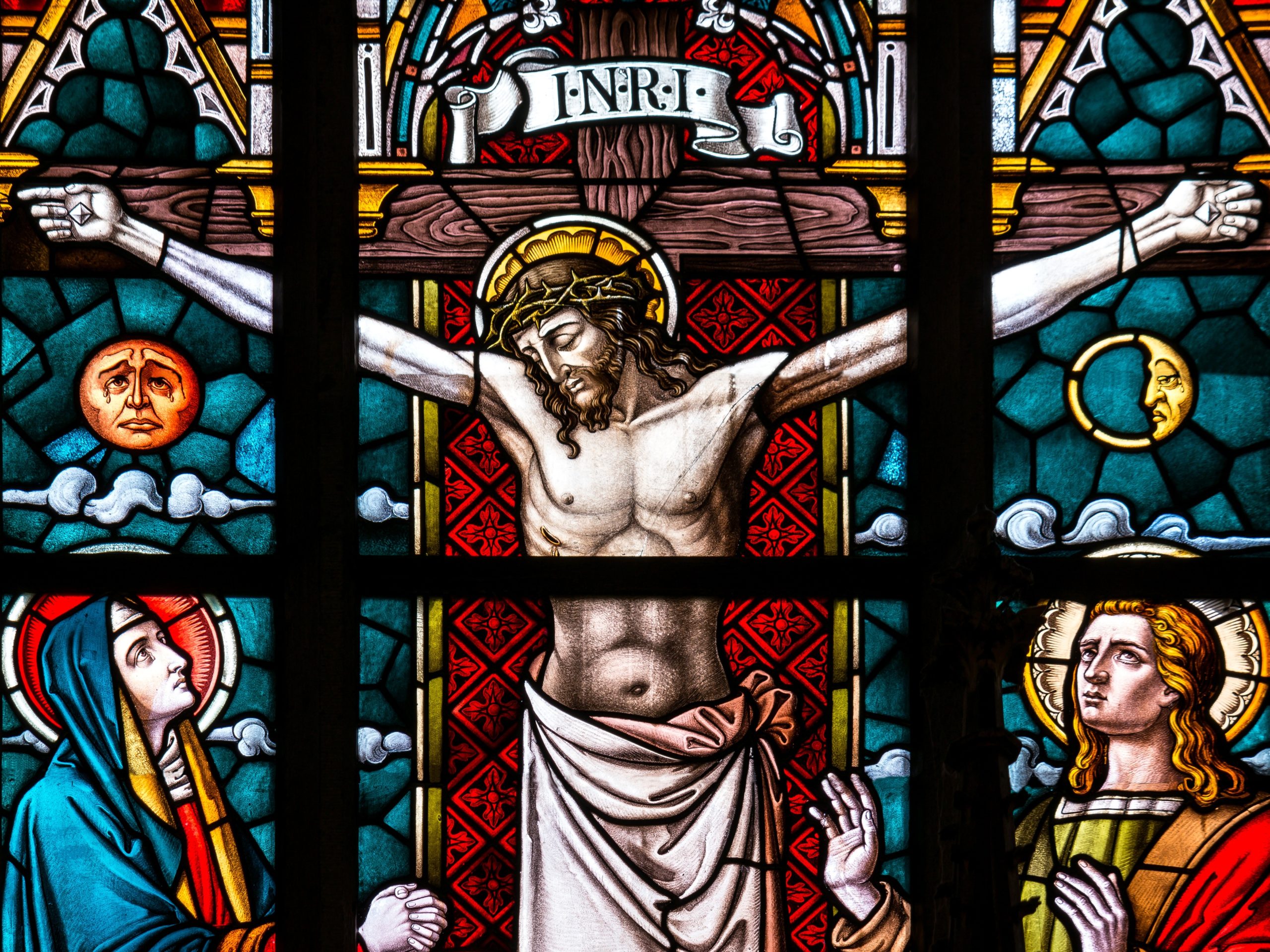Last Updated on 2022-07-08 by Joop Beris
There are several articles on my blog where I explain why I am an atheist. There are plenty of reasons I can give why I don’t believe in any gods. So far though, I haven’t explained the process that lead me to reject my Christian faith. A series of events that I could not reconcile with the teachings of my pastor and what I read in the Bible ultimately brought me to a choice: rejecting reason or rejecting Christianity.
My conversion
In retrospect, I am not exactly sure why I decided to accept Jesus as my savior. After all, after my initial run-in with a Catholic priest at age 11, I was convinced that Christianity wasn’t my cup of tea. For about a decade after that discussion, I didn’t pay attention to religion at all. I was convinced that it was all bunk and had nothing to offer for me. During my years in college I took a class devoted to religious history. The class focused on the influence of religion on European history and later in the colonies. It described every kind of evil, atrocity and genocide you might imagine, all under the banner of Christianity. You could say that I was thoroughly inoculated. However, I did dabble in the occult a little bit.
Attending church

I started attending church on occasion after I got married. This wasn’t a Catholic church but a Protestant church. It didn’t make a lot of difference because the songs were just as boring and the message just as unconvincing. Things changed when a new pastor came, a man who had done missionary work and who was full of religious fire. His message was inspiring and I saw how it affected people around me. People were moved and I can’t deny he managed to bring people together.
In retrospect I think I felt left out. As an unbeliever I wasn’t part of the community, I didn’t feel the same things as they did. I think most of all, I wanted to be part of that community and to belong. I read the books they recommended I should read. Books by apologists like Lee Strobel and C.S. Lewis. Strobel wasn’t very convincing because even though he claimed skepticism, I didn’t think he was a very good skeptic. Lewis was more convincing but that’s because I didn’t see through his logical fallacies at the time. I debated my doubts and findings with a different Protestant pastor but he also failed to provide convincing arguments.
Accepting Jesus
Gradually though, my resistance eroded and the urge to adopt Christianity grew stronger. Finally, I decided I should accept Jesus as my lord and savior. I didn’t feel entirely convinced but the emotional need was there. Much to the joy of everyone in the church I formally announced my decision. I was baptized with full immersion and professed Jesus was lord in front of the congregation. It felt good to make the decision and I can honestly say that the first few days I felt different. I believed I was blessed and changed.
Doubt
Almost immediately however, doubt crept in. I remember laying in bed at night thinking to myself: “do I really believe this?” During the day, it was easy enough to ignore these nagging doubts but when listening to a particularly improbable story from the Bible, it wasn’t. I remember sitting through Bible study and giving the answer I knew was considered correct but I felt uneasy doing so. I kept reading apologists trying to find confirmation of my faith, which in retrospect is really the wrong thing to do. You should never look at only one side of any argument.
I tucked these doubts away, doubled down on prayer asking Jesus to remove my doubts but things didn’t really change. It felt like convincing myself there really was something true to believe in, that there really was a God listening. This phase of harboring secret doubts lasted for several months and then something happened: a loved on became gravely ill.
God versus cancer
The news wasn’t good and the prospect even worse: a cancer that was impossible to operate on and that killed most of the people diagnosed within 2 years. And it was already well established. The person who had become ill, had been a Christian for most of her life. Naturally, when Christians become ill, they pray to God for help, for guidance, anything. So did she, so did her church, so did my family and our church and so did I. We prayed daily for recovery, healing and support but it didn’t seem to make a difference. The disease took its course more or less like the doctors predicted. Eventually, when recovery no longer seemed possible, we began praying for the opposite: a quick, dignified end without pain. Not even that prayer was answered. Many more weeks of suffering followed before death eventually came, just as the doctors predicted.

Another issue
At the same time, I was praying for another, more personal matter. I won’t address it here in any detail but suffice it to say that it bothered me quite a bit. I prayed frequently and even discussed it with our pastor who suggested there might be demonic influence at work (no joke!). He told me this with a voice as sombre and a face as serious as that of a doctor announcing bad news. We prayed together over this issue but again, prayer had no effect whatsoever.
This bothered me a great deal because like in most churches, we were encouraged to pray for any issues. It didn’t matter if these issues were big or small, we could always bring them before God. What I noticed was that in these prayers, we already built in little excuses for God in case he wasn’t going to answer the prayer. “If it is your will, please do so and so”. And of course we finished our prayers by ending with asking in Jesus’ name, as we’d been taught.
God versus cancer, again
At one point during this time, a colleague of mine was battling cancer as well. She was in a lot of pain and barely holding on when I decided to visit her. I sat with her, held her hand and prayed with her the most heartfelt prayer I could offer. I pleaded with God for healing and support. A week later, at Christmas, she passed away leaving behind a new husband and a teenage son. What loving God would tear a mother away from her child in such a way?
Asking the pastor
Even though these doubts were problematic, I wasn’t yet ready for rejecting Christianity. I decided I would take my doubts and present them to our pastor. I wanted him to reconcile the promise of the Gospel with the failure of my prayers. In John 14, 13 -14 Jesus tells his disciples: “And whatsoever ye shall ask in my name, that will I do, that the Father may be glorified in the Son. If ye shall ask any thing in my name, I will do it.” Jesus promises that whatever his followers ask for in His name, He will grant them that for which they ask. There are no terms and conditions, you simply need to ask in Jesus’ name.
Mysterious ways
I don’t remember what kind of answer I expected from our pastor but the one I did get, was entirely unsatisfactory. It didn’t do much to ease my doubts, instead it cemented them. They became impossible to ignore. The answer basically amounted to: “God works in ways we can not understand yet we must trust his plan. He has a plan for all of us and he keeps us in the palm of his hand”.

I’ve discussed these doubts in a previous article so if you want to know more about them, I suggest you take a look at that.
Even after this poor response, rejecting Christianity wasn’t my first thought. I wrestled with these doubts a bit longer but soon after this moment, our pastor retired and the little church we attended, began to break up due to lack of leadership. We needed a new church.
Going Pentecostal
As luck would have it or perhaps by divine intervention (that was a joke), a small group of Pentecostal Christians began making noise in my neighborhood. I mean that quite literally. They set up a tent, a speaker system and a large sign on top of the tent that proclaimed in big, bold letters that “Jesus is Lord”. Curious what all the shouting was about, I decided to check it out. The preacher was full of fire, proclaiming in a loud voice that salvation was only through Jesus, that people were all sinners, etc. When I mentioned I was a Christian he said you can’t be fully a Christian unless you’ve been baptized by the Holy Spirit. Would we like to attend one of their gatherings?
In retrospect, the decision to attend the gathering proved to be the final nail in the coffin of my religious faith. I felt really uneasy in the service where people came forward to be touched on the forehead and then fell to the ground rolling and convulsing. Other people babbled incoherently in public, a practice they referred to as “speaking in tongues“, which they believe proves the Holy Spirit was moving these people to speak.
Apart from the huge cringe factor involved with these practices, I couldn’t find fault with these people for their practice. The Bible does mention all of them. As embarrassing as it is to admit now, I even tried speaking in tongues but I couldn’t do it.
Rejecting Christianity
The matter was really settled for me when I heard how deep the denial of reality went with these people. Again, I can’t fault them for their literal interpretation of the Bible. The Bible mentions all of the things they believe to be true and they do live according to scripture, much more so than other churches I visited. Their strict adherence to scripture actually helped me see how poor the Bible is as a guidebook for life.
When one of their members was ill, they didn’t go to the doctor. Instead they gathered to pray over the sick person, anointing him or her in the process. The pastor, married and father of several small children, decided to quit his job so he could devote all his time to preaching. He fully expected that God would provide for him. In reality though, it meant that the small congregation simply had to donate more. To me, this was a symptom of a serious denial of reality. I’m sure they see it as having strong faith.
Taking my doubts seriously
Why was it that the people who seemed most serious and who adhered most to scripture, were also the ones who denied reality? Why would someone forego the blessings of modern medicine and instead rely on ineffective prayer? I saw prayer fail repeatedly when praying for healing or for other improbable outcomes. The more mundane the prayer, the higher the chance of success. Unanswered prayers should be a cause for concern for believers. Finally, I took my doubts seriously.
Also, I realized the mistake I made up until this point: I looked at Christian apologists for confirmation but I never looked at the opposite side of the argument! That is a fatal mistake. I began searching the internet for counter-apologists and quickly discovered there were many. Everywhere I looked, I saw people recommending books by people like Richard Dawkins, Christopher Hitchens, Sam Harris and Daniel C. Dennett. Ironically dubbed “The Four Horsemen of the non-Apocalypse“, obviously a play on the Four Horsemen of the Apocalypse from the Book of Revelation, these four men wiped the floor with religious dogma and apologists arguments.

Rediscovering skepticism
From the Four Horsemen, I explored further. I read up on philosophy, I looked at the Problem of Evil and discovered how much more sense the arguments of Hume, Spinoza, Russell, Randi, Sagan and the already mentioned Horsemen made. The arguments of Lee Strobel or C.S. Lewis shriveled up and died in the light of reason, skepticism and free inquiry. Through these works, I was reconnected with the skepticism I had when I was an inquisitive boy questioning the village priest and being accused of disrupting class.
My faith, plagued as it was by the doubts I already had, simply became untenable. Rejecting Christianity became the only option if I wanted to remain intellectually honest. To paraphrase David Hume: we should proportion our acceptance of a claim to the evidence for that claim. I now saw that many of the claims of Christianity are not based on evidence. Instead, they are based on bad logic, faulty reasoning and emotion.
Embracing atheism
Almost overnight, I went from a doubting believer to rejecting Christianity and embracing atheism. I felt immense relief because I was no longer experiencing cognitive dissonance. My beliefs no longer clashed with reality and the world around me made sense again. I felt happy to be free of superstition and baseless beliefs. So happy actually, that I started blogging about atheism here. It also surprised me a great deal to learn how weak and unsupported religious claims are. I now feel a moral obligation to correct bad reasoning and point out superstition and nonsense to others.
To improve the quality of my articles and my reasoning skills, I searched online for other atheists who were active and open. It turned out I was far from alone! I found people like Hemant Mehta, aka “The Friendly Atheist” and the rightly famous Atheist Experience TV show, presented by Matt Dillahunty and co-hosts like Jenna Belk, Russel Glasser, Tracie Harris, Shannon Q and many others.
I began debunking religious articles I found online and began answering “questions for atheists” type posts. In addition, I began writing articles to provoke and I discussed with believers on Twitter and here too. When I started debunking a particularly bad video series produced by the Restored Church of God, I found that another active atheist by the name of Aron Ra had already done a much more thorough job than I could ever hope to do.
I want to believe
I still want to believe, but not in the teachings of any religion. Instead, I want to believe as many true things as possible and as little false things as possible. For that reason, I continue to improve my reasoning skills, my knowledge of philosophy and I continue to write here when I can. I have expanded my range of topics but I still feel strongly about atheism and I continue to write about it. I am also quite happy to engage in discussion with people who still believe.
Finally, let me say that rejecting Christianity wasn’t a result of being angry with God because my prayers weren’t answered. I don’t want to sin or love sin because sin isn’t real. The concept of sin doesn’t exist outside of the faith so when you don’t have faith, sin evaporates. Rejecting Christianity was the result of intellectual honesty and following the evidence where it leads. Ultimately, that’s the only way to really know anything.


Comments
3 responses to “Rejecting Christianity”